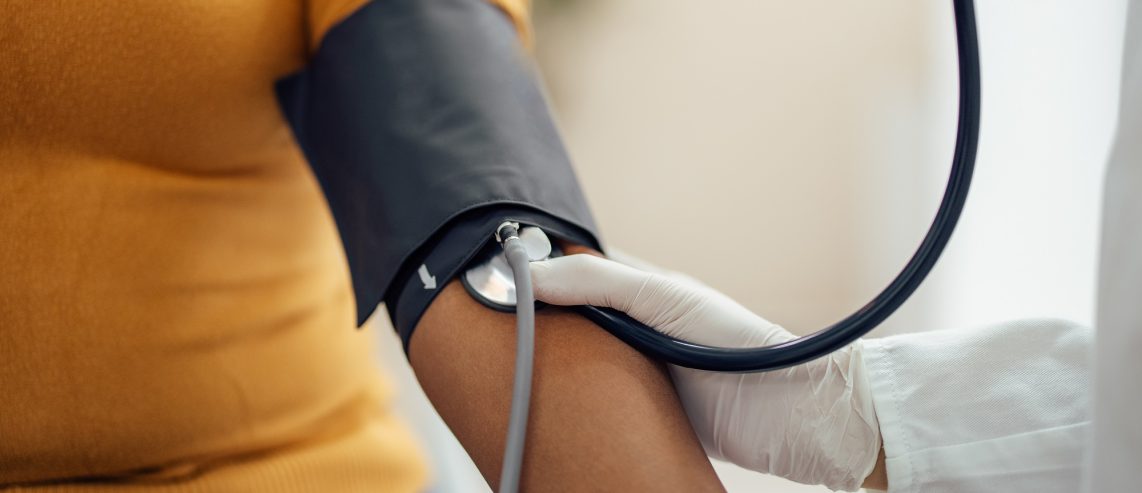Following hip surgery in 2017, Emma began noticing feelings of exhaustion. It started to affect her life, making everyday tasks difficult.
Emma spent the next five years searching for a solution to her ongoing symptoms. After countless diagnostic tests and trips to specialists, one of her doctors recommended that she take a tilt table test.
A tilt table test measures a person’s response to positional changes, such as standing upright. It often determines whether fainting has resulted from an abnormal heart rate or blood pressure that occurs during positional changes.
The test records the patient’s blood pressure, heart rhythm, and heart rate as the table tilts to different angles. The doctor changes the angle of the table to assess the patient’s response.
Using the tilt table test, Emma’s doctors were able to determine that she was suffering from orthostatic hypotension.
Never Miss a Beat!
Subscribe to Our HealthBeat Newsletter!
Thank you for subscribing!
You can now select the specific newsletters you'd like to receive.
You are already subscribed.
Subscribe to more newsletters in our email preference center.
Sorry, an error occurred. Please try again later.
Get Healthy Tips Sent to Your Phone!
What Is Orthostatic Hypotension?
Orthostatic hypotension is also known as postural hypotension. It is a condition that occurs when your blood pressure quickly drops after moving from a seated to a standing position.
When seated or lying down, blood can easily flow throughout your body. When you stand up, gravity causes blood to pool in your legs and lower body, preventing it from reaching your heart. There is less blood available for your heart to send to organs and muscles, so your blood pressure temporarily drops.
The most common symptoms that can occur with orthostatic hypotension are lightheadedness and dizziness when standing. Other symptoms may include:
- Blurred vision.
- Weakness.
- Nausea.
- Confusion.
- Headache.
- Chest pain.
- Fainting, also known as syncope.
Who Is at Risk for Orthostatic Hypotension?
As you age, you are more likely to develop orthostatic hypotension. Although this condition can affect anyone, there are a few factors that increase your risk. These include:
- Dehydration.
- Certain medications (for heart disease or high blood pressure).
- Extended bed rest.
- Alcohol consumption.
Orthostatic hypotension occurs most often in the morning when your blood pressure is at its lowest. It’s important to consult your doctor if you experience any of these symptoms.
Emma’s Next Stage in Care
After Emma’s doctor determined that she had orthostatic hypotension, she went on different prescribed blood pressure medications to help. When none of these treatments improved her condition, Emma got referred to Katie Berlacher, MD, medical director of the UPMC Magee-Womens Heart Program.
At the Magee-Womens Heart Program, Dr. Berlacher and her team understand the unique challenges that women face in their cardiovascular health. The team takes time to understand each patient’s condition and works collaboratively with other specialists to provide the best treatment.
“Dr. Berlacher was very understanding and had experience seeing women with similar health issues as I was dealing with,” says Emma.
After examining her medical history, Dr. Berlacher recommended Emma to a cardiac rehab program through UPMC Shadyside.
This outpatient program is for people recently diagnosed with heart disease or recovering from a heart procedure. It provides the individualized knowledge, tools, and support you need to succeed in developing a healthy lifestyle. This includes:
- Exercise.
- Proper nutrition.
- Quitting smoking.
- Controlling other risk factors that increase your risk of heart disease.
“The folks at the cardiac rehab program were absolutely wonderful and supportive,” says Emma. “It has definitely made a big difference in improving my symptoms.”
Though Emma has completed the cardiac rehabilitation program, she still attends regular checkups with Dr. Berlacher.
“Working with Dr. Berlacher specifically has been life changing,” says Emma. “I can’t say enough good things about her. I am so happy I finally found a cardiologist who didn’t turn me away and who listened to me and believed me.”
Emma continues to see improvement in her symptoms and overall health, but her journey isn’t over yet. She still lives with symptoms that make daily life challenging. Emma has found ways to cope with her condition and offers encouragement for women experiencing the same condition.
“My biggest piece of advice is to not give up on yourself,” says Emma. “I’m not going to lie, the cardiac rehab program is tough. And I relied on the support of family and friends who were there with me every step of the way.
“It feels great to be productive again. And I feel like my health issues helped me to make better decisions to prioritize myself and be kinder to myself. I have learned a lot.”
To learn more about the Magee-Womens Heart Program or to schedule an appointment, call 412-641-8870.
Emma’s treatment and results may not represent similar cases.
About UPMC Magee-Womens
Built upon our flagship, UPMC Magee-Womens Hospital in Pittsburgh, and its century-plus history of providing high-quality medical care for people at all stages of life, UPMC Magee-Womens is nationally renowned for its outstanding care for women and their families.
Our Magee-Womens network – from women’s imaging centers and specialty care to outpatient and hospital-based services – provides care throughout Pennsylvania, so the help you need is always close to home. More than 25,000 babies are born at our network hospitals each year, with 10,000 of those babies born at UPMC Magee in Pittsburgh, home to one of the largest NICUs in the country. The Department of Health and Human Services recognizes Magee in Pittsburgh as a National Center of Excellence in Women’s Health; U.S. News & World Report ranks Magee nationally in gynecology. The Magee-Womens Research Institute was the first and is the largest research institute in the U.S. devoted exclusively to women’s health and reproductive biology, with locations in Pittsburgh and Erie.
